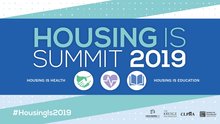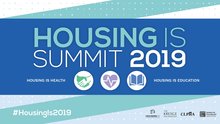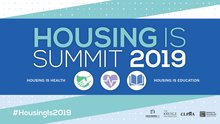0
Policy Brief
Community:
Mar 1, 2023
Social service programs are often looking for ways to assess and improve program design and implementation, and are increasingly using rapid learning methods to do so. In rapid learning cycles, programs try a new approach, see how well it works, make modifications to strengthen it, and then try it again. This brief illustrates how 10 fatherhood programs used learning cycles to evaluate one of three promising approaches to engaging men in their services, and the ways they used data in the learning cycle process to make decisions about the design and implementation of the approaches. Even outside of the learning cycle framework, programs may benefit from using data and the observations and reflections of participants and staff members to guide the implementation of program elements, as is illustrated in this piece.
Authored by: Keri West, Diego Quezada, Jonny Poilpré, and Rebecca Behrmann for Manpower Demonstration Research Corporation
Topics: Family engagement, Healthy homes, Research
 Shared by Sandra Ware
Shared by Sandra Ware
Sandra Ware posted a
on Jun 8, 2023
Keri West, Diego Quezada, Jonny Poilpré, and Rebecca Behrmann for Manpower Demonstration Research Corporation
Social service programs are often looking for ways to assess and improve program design and implementation, and are increasingly using rapid learning methods to do so.
0
Policy Brief
Community:
Mar 1, 2023
This document summarizes what was learned in SIRF (Strengthening the Implementation of Responsible Fatherhood Programs), which engaged 10 programs in using learning cycles—repeated periods of implementing ideas and reflecting on the results—to build evidence on practices to improve the enrollment, engagement, and retention of fathers in fatherhood programs.
Authored by: Charles Michalopoulos and Rebecca Behrmann for Strengthening the Implementation of Responsible Fatherhood Programs
Topics: Family engagement, Research
 Shared by Sandra Ware
Shared by Sandra Ware
Sandra Ware posted a
on Jun 8, 2023
Charles Michalopoulos and Rebecca Behrmann for Strengthening the Implementation of Responsible Fatherhood Programs
This document summarizes what was learned in SIRF (Strengthening the Implementation of Responsible Fatherhood Programs), which engaged 10 programs in using learning cycles—repeated periods of implementing ideas and reflecting on the results—to build evidence on practices to improve the enrollment, e
0
Policy Brief
Community:
Sep 28, 2022
Approximately one in five adults reported experiencing household food insecurity in both spring 2020 and again in summer 2022, after a decline in reported food insecurity in spring 2021. High food price inflation, along with elevated costs for other basic needs, such as transportation and rent, have likely eroded food budgets in the last year. In addition, some of the safety net responses that buffered food insecurity in 2021 are no longer in place. In this brief, we use data from the Health Reform Monitoring Survey, a nationally representative survey of nonelderly adults, to assess food insecurity among households with nonelderly adults in March/April 2020, April 2021, and June 2022.
Authored by: Elaine Waxman, Julio Salas, Poonam Gupta, Michael Karpman for the Urban Institute
Topics: Food insecurity, Research, Stability
 Shared by Sandra Ware
Shared by Sandra Ware
Sandra Ware posted a
on Oct 27, 2022
Elaine Waxman, Julio Salas, Poonam Gupta, Michael Karpman for the Urban Institute
Approximately one in five adults reported experiencing household food insecurity in both spring 2020 and again in summer 2022, after a decline in reported food insecurity in spring 2021.
0
Video
Community:
Jun 17, 2022
The Vancouver Housing Authority collaborated with a Federally Qualified Health Center and a homeless crisis response system to develop a network of scattered-site and site-based supportive housing. This moderated discussion will cover how VHA paired Housing Choice Vouchers and public housing with a Medicaid-funded supportive housing benefit to serve people identified by the community’s Coordinated Entry as needing supportive housing. Speakers will also discuss the challenges faced through the process, model adjustments made, and evaluation of the work through matching housing data and Medicaid utilization data.
Authored by:
Topics: Advocacy, CLPHA, Data sharing, Family engagement, Health, Healthy homes, Homelessness, Housing, Legislation & Policy, Low-income, Research, Stability, Sustainability
 Shared by Karina George
Shared by Karina George
Karina George posted a
on Jun 17, 2022
The Vancouver Housing Authority collaborated with a Federally Qualified Health Center and a homeless crisis response system to develop a network of scattered-site and site-based supportive housing.
0
Video
Community:
Jun 17, 2022
The Columbus Metropolitan Housing Authority (CMHA) has formed a partnership with the Healthcare Collaborative of Greater Columbus (HCGC) and their Central Ohio Pathways HUB to provide supportive services to all 14,000 CMHA-assisted households. HCGC’s HUB is a nationally certified program focused on addressing the Social Determinants of Health in an effort to improve health outcomes for at-risk populations. The HUB oversees 10 Care Coordination Agencies (CCAs) and their employed Community Health Workers (CHWs) to provide these services. The HUB contracts with Medicaid Managed Care Organizations, who provide payments to the HUB for services called Pathways delivered to their members.
Authored by:
Topics: Advocacy, Community development, Housing, Partnerships, Racial inequalities, Research, Supportive housing, Sustainability
 Shared by Karina George
Shared by Karina George
Karina George posted a
on Jun 17, 2022
The Columbus Metropolitan Housing Authority (CMHA) has formed a partnership with the Healthcare Collaborative of Greater Columbus (HCGC) and their Central Ohio Pathways HUB to provide supportive services to all 14,000 CMHA-assisted households.
0
Video
Community:
Jun 17, 2022
The Administration for Community Living’s Aging and Disability Network is a multifaceted service infrastructure for older adults and people with disabilities so they can find housing and obtain services like chore assistance, delivered meals, and transportation. By partnering with this community infrastructure, PHAs can improve voucher utilization and leverage and align resources so older adults, people with disabilities, and people experiencing homelessness —all priority populations for federal housing assistance—can obtain supportive services needed to attain housing stability, optimize well-being, and avoid homelessness and costly institutional care. Join this session to learn about PHA partnerships with this infrastructure, discuss the dynamics of cross-sector partnerships in community-driven approaches, and discover opportunities available through the Housing and
Services Resource Center.
Authored by:
Topics: Advocacy, Community development, Disabilities, Health, Housing, Partnerships, Research, Seniors, Supportive housing, Sustainability
 Shared by Karina George
Shared by Karina George
Karina George posted a
on Jun 17, 2022
The Administration for Community Living’s Aging and Disability Network is a multifaceted service infrastructure for older adults and people with disabilities so they can find housing and obtain services like chore assistance, delivered meals, and transportation.
0
Video
Community:
Jun 17, 2022
Housing providers are uniquely positioned to find innovative and meaningful ways to engage residents with lived experience in program design and implementation to ensure investments are focused, efficient, and culturally appropriate. Learn how the King County Housing Authority in Washington and The Community Builders in Cincinnati, OH are responding to the needs and desires of their residents in new ways that leverage the assets and strengths of their residents to ensure that young children thrive. Attendees will leave this session with new ideas to incorporate resident input in early childhood programming to make it more effective.
Authored by:
Topics: Advocacy, CLPHA, Education, Family engagement, Housing, Low-income, Research, Supportive housing, Sustainability
 Shared by Karina George
Shared by Karina George
Karina George posted a
on Jun 17, 2022
Housing providers are uniquely positioned to find innovative and meaningful ways to engage residents with lived experience in program design and implementation to ensure investments are focused, efficient, and culturally appropriate.
0
Video
Community:
Jun 17, 2022
This panel discussion will examine the results of efforts to significantly expand the reach of HUD’s Family Self-Sufficiency Program through partnerships between the nonprofit Compass Working Capital and the Boston and Cambridge Housing Authorities. Panelists will discuss their program model and its evaluation, how they have scaled up FSS, what results they have experienced to date, and where they plan to go from here. An FSS program participant will participate in the panel and share their perspective on how the program has benefitted them.
Authored by:
Topics: Advocacy, Asset building, CLPHA, Early childhood, Education, Housing, Legislation & Policy, Research, Supportive housing
 Shared by Karina George
Shared by Karina George
Karina George posted a
on Jun 17, 2022
This panel discussion will examine the results of efforts to significantly expand the reach of HUD’s Family Self-Sufficiency Program through partnerships between the nonprofit Compass Working Capital and the Boston and Cambridge Housing Authorities.
0
Video
Community:
Jun 17, 2022
This session will review the extent to which local jurisdictions engaged with school districts in the 2016-17 Affirmatively Furthering Fair Housing (AFFH) process and preview the potential for PHAs to engage with school districts and school data in the upcoming renewal of the HUD AFFH process.
Authored by:
Topics: Advocacy, Attendance, CLPHA, Data sharing, Education, Family engagement, Housing, Legislation & Policy, Research, Sustainability
 Shared by Karina George
Shared by Karina George
Karina George posted a
on Jun 17, 2022
This session will review the extent to which local jurisdictions engaged with school districts in the 2016-17 Affirmatively Furthering Fair Housing (AFFH) process and preview the potential for PHAs to engage with school districts and school data in the upcoming renewal of the HUD AFFH process.
0
Video
Community:
Jun 17, 2022
Building off discussions during previous Summits, this panel will highlight research and promising practices on cash assistance for low-income individuals and families, including income supports stemming from the pandemic.
Authored by:
Topics: Advocacy, CLPHA, Funding, Housing, Legislation & Policy, Research
 Shared by Karina George
Shared by Karina George
Karina George posted a
on Jun 17, 2022
Building off discussions during previous Summits, this panel will highlight research and promising practices on cash assistance for low-income individuals and families, including income supports stemming from the pandemic.
0
Video
Community:
Jun 3, 2019
On June 3, Governance Studies at Brookings cohosted an event with Contexts Magazine, featuring an expert panel that discussed the causes, consequences, and policy solutions to the racial wealth gap.
Authored by: The Brookings Institution
Topics: Racial inequalities, Research
 Shared by Housing Is
Shared by Housing Is
Housing Is posted a
on Jun 11, 2019
The Brookings Institution
On June 3, Governance Studies at Brookings cohosted an event with Contexts Magazine, featuring an expert panel that discussed the causes, consequences, and policy solutions to the racial wealth gap.
0
Video
Community:
May 20, 2019
On May 20, the Brookings Metropolitan Policy Program and George Washington University’s Center for Washington Area Studies (CWAS) co-hosted an event to discuss housing growth and affordability in the Capital Region. The event started with the presentation of a new report by CWAS Director Leah Brooks. An expert panel discussed what local governments, developers, and affordable housing advocates can do to make sure the region meets the housing needs of all its residents.
Authored by: The Brookings Institution
Topics: East Coast, Housing, Legislation & Policy, Research
 Shared by Housing Is
Shared by Housing Is
Housing Is posted a
on May 28, 2019
The Brookings Institution
On May 20, the Brookings Metropolitan Policy Program and George Washington University’s Center for Washington Area Studies (CWAS) co-hosted an event to discuss housing growth and affordability in the Capital Region.
0
Video
Community:
May 24, 2019
With ever-growing interest in the intersection between housing and health, researchers are evaluating the impact of cross-sector interventions. This session will bring together researchers to share insights from their work relevant to practitioners and policymakers.
Authored by: Housing Is, CLPHA
Topics: CLPHA, Health, Homelessness, Housing, Low-income, Partnerships, Research, Seniors
 Shared by Housing Is
Shared by Housing Is
Housing Is posted a
on May 24, 2019
With ever-growing interest in the intersection between housing and health, researchers are evaluating the impact of cross-sector interventions. This session will bring together researchers to share insights from their work relevant to practitioners and policymakers.
0
Video
Community:
May 24, 2019
Dr. Camara Jones, a Senior Fellow at Morehouse School of Medicine and a past president of the American Public Health Association, will discuss systemic, historical inequities that constrict the social safety net and ways cross-sector collaboration can help improve health outcomes, educational attainment, and housing stability.
Authored by: Housing Is, CLPHA
Topics: Health, Housing, Racial inequalities, Research
 Shared by Housing Is
Shared by Housing Is
Housing Is posted a
on May 24, 2019
0
Video
Community:
May 24, 2019
Recent research shows that place matters in economic mobility. Strong neighborhoods and community resources can have long-term impact on educational achievements and earnings. Building off of this research, David Williams from Opportunity Insights will discuss how PHAs are collaborating with researchers to develop and evaluate effective interventions for families with young children.
Authored by: Housing Is, CLPHA
Topics: CLPHA, Mobility, Partnerships, Place-based, Research
 Shared by Housing Is
Shared by Housing Is
Housing Is posted a
on May 24, 2019
Recent research shows that place matters in economic mobility. Strong neighborhoods and community resources can have long-term impact on educational achievements and earnings.
0
Video
Community:
May 24, 2019
A landmark National Academies of Sciences report commissioned by Congress concludes that childhood poverty in the U.S. could be cut in half within a decade with appropriate action. The report culls through the existing evidence-base to identify the most impactful existing policies including the Earned Income Tax Credit (EITC) and housing assistance. This panel will also discuss promising new policies that if enacted could help reduce poverty such as the child allowance.
Authored by: Housing Is, CLPHA
Topics: Child welfare, CLPHA, Housing, Legislation & Policy, Low-income, Partnerships, Research
 Shared by Housing Is
Shared by Housing Is
Housing Is posted a
on May 24, 2019
A landmark National Academies of Sciences report commissioned by Congress concludes that childhood poverty in the U.S. could be cut in half within a decade with appropriate action.
0
Video
Community:
May 9, 2019
On May 9, the Brookings Institution hosted an event to discuss the subsequent report, “A Roadmap to Reducing Child Poverty.” The event featured comments from Greg Duncan, who served as Chair of the Committee on Building an Agenda to Reduce the Number of Children in Poverty by Half in 10 Years, as well as a panel discussion on the report, its recommendations, and barriers to implementation. A second panel highlighted national and state policy perspectives of the consensus study report.
Authored by: The Brookings Institution
Topics: Early childhood, Funding, Housing, Legislation & Policy, Low-income, Research, Youth
 Shared by Housing Is
Shared by Housing Is
Housing Is posted a
on May 13, 2019
The Brookings Institution
On May 9, the Brookings Institution hosted an event to discuss the subsequent report, “A Roadmap to Reducing Child Poverty.” The event featured comments from Greg Duncan, who served as Chair of the Committee on Building an Agenda to Reduce the Number of Children in Poverty by Half in 10 Years, as we
0
Policy Brief
Community:
May 1, 2019
Stable housing plays a vital role in people’s recovery from substance use disorders (SUDs). An inability to pay rent and the threat of losing housing can lead to stress that triggers substance misuse and relapse. People experiencing homelessness who also have SUDs typically find it difficult to address their substance use without a safe place to live, because they often use alcohol or drugs to cope with the dangers of life on the streets. In 2018, Congress passed the SUPPORT for Patients and Communities Act (known as the SUPPORT Act), which provided a variety of new programs and funding opportunities to help states and localities address the opioid epidemic and broadly help people with substance use disorders.
Authored by: Center on Budget and Policy Priorities
Topics: Homelessness, Housing, Legislation & Policy, Low-income, Mental health, Research, Substance abuse
 Shared by Housing Is
Shared by Housing Is
Housing Is posted a
on May 2, 2019
Center on Budget and Policy Priorities
Stable housing plays a vital role in people’s recovery from substance use disorders (SUDs). An inability to pay rent and the threat of losing housing can lead to stress that triggers substance misuse and relapse.
0
Infographics
Community:
Recently, several of the BUILD communities approached us with a seemingly straightforward question about how many housing inspectors other cities have to enforce their rental codes and protect residents from unsafe housing. They intended to use this information to better understand the role housing inspectors play within different communities, since they are often a major stakeholder in identifying and addressing building related issues that directly impact the health of residents (e.g., chronic asthma).
Authored by: Emily Yu for The BUILD Health Challenge
Topics: Asthma, Health, Housing, Research, Safety
 Shared by Mica O'Brien
Shared by Mica O'Brien
Mica O'Brien posted a
on Feb 20, 2019
Emily Yu for The BUILD Health Challenge
Recently, several of the BUILD communities approached us with a seemingly straightforward question about how many housing inspectors other cities have to enforce their rental codes and protect residents from unsafe housing.
0
Video
Community:
Feb 13, 2019
U.S. House Committee on Financial Services, Full Committee
Authored by: U.S. House Committee on Financial Services
Topics: Funding, Homelessness, Housing, Legislation & Policy, Research, Stability
 Shared by Mica O'Brien
Shared by Mica O'Brien
Mica O'Brien posted a
on Feb 19, 2019
U.S. House Committee on Financial Services
U.S. House Committee on Financial Services, Full Committee
0
Policy Brief
Community:
Jan 18, 2019
This memo provides an overview of the impact of the shutdown on tenants in the various federally-assisted housing programs, including ways you can talk to clients about their legal rights. Importantly, there is currently only a relatively small group of tenants in HUD and RD project-based rental assistance properties that face an immediate risk due to contracts between owners and HUD or RD that expired starting in December.
Authored by: National Housing Law Project
Topics: Homelessness, Housing, Legislation & Policy, Research
 Shared by Mica O'Brien
Shared by Mica O'Brien
Mica O'Brien posted a
on Jan 22, 2019
National Housing Law Project
This memo provides an overview of the impact of the shutdown on tenants in the various federally-assisted housing programs, including ways you can talk to clients about their legal rights.
0
Policy Brief
Community:
Dec 12, 2018
In many US cities and towns, housing costs are increasing faster than incomes. Americans who rent their homes have been hit especially hard: nearly half of renters shoulder unaffordable housing costs. A forthcoming report by the New York University Furman Center for Real Estate and Urban Policy shows that between 1970 and 2016, the share of rent-burdened households went up in the 100 largest metropolitan areas nationwide.
Authored by: Ingrid Gould Ellen and Mark A. Willis for How Housing Matters (Urban Institute)
Topics: Funding, Housing, Legislation & Policy, Research
 Shared by Mica O'Brien
Shared by Mica O'Brien
Mica O'Brien posted a
on Dec 13, 2018
Ingrid Gould Ellen and Mark A. Willis for How Housing Matters (Urban Institute)
In many US cities and towns, housing costs are increasing faster than incomes. Americans who rent their homes have been hit especially hard: nearly half of renters shoulder unaffordable housing costs.
0
Policy Brief
Community:
Nov 1, 2018
There are opportunities for federal and state policies to better support postsecondary institutions in serving students who are parents and their families. Policymakers can incentivize partnerships, name students who are parents as special or target populations, and facilitate financial aid processes that address the needs of families. Where possible, policies can also encourage creative and innovative approaches to leveraging existing programs to facilitate access and successful completion for parenting students. These recommendations seek to promote policy changes that address the critical supports students raising children and their families need for successful completion: affordable and quality child care, financial aid, wraparound services, and workforce readiness.
Authored by: Ascend: The Aspen Institute
Topics: Dual-generation, Education, Legislation & Policy, Partnerships, Post-secondary, Research, Workforce development, Youth
 Shared by Mica O'Brien
Shared by Mica O'Brien
Mica O'Brien posted a
on Nov 1, 2018
Ascend: The Aspen Institute
There are opportunities for federal and state policies to better support postsecondary institutions in serving students who are parents and their families.
0
Policy Brief
Community:
Oct 29, 2018
In this Focus on Unaccompanied Youth brief, we review data and information that help us answer the following
questions:
• What is the scale of youth homelessness?
• What do we know about unaccompanied youth who experience homelessness?
• What do we know about patterns of homelessness among unaccompanied youth?
• What do we know about youths’ risks for experiencing homelessness?
• What are the most significant gaps in available data and our current understanding of unaccompanied
youth who experience homelessness?
Authored by: U.S. Interagency Council on Homelessness
Topics: Data sharing, Homelessness, Housing, Low-income, Metrics, Research, Youth
 Shared by Mica O'Brien
Shared by Mica O'Brien
Mica O'Brien posted a
on Nov 1, 2018
U.S. Interagency Council on Homelessness
In this Focus on Unaccompanied Youth brief, we review data and information that help us answer the following
questions:
• What is the scale of youth homelessness?
• What do we know about unaccompanied youth who experience homelessness?
• What do we know about patterns of homelessness among unacc
0
Policy Brief
Community:
Oct 9, 2018
This brief highlights evidence on nutrition supports for families with young children and proposes a policy-focused research agenda designed to address knowledge gaps in two areas: (1) understanding disparities in participation in nutrition supports and (2) assessing strategies to increase access to nutrition supports and reduce nutrition disparities.
Authored by: Mathematica
Topics: Child welfare, Dual-generation, Early childhood, Food insecurity, Low-income, Nutrition, Research
 Shared by Mica O'Brien
Shared by Mica O'Brien
Mica O'Brien posted a
on Oct 22, 2018
This brief highlights evidence on nutrition supports for families with young children and proposes a policy-focused research agenda designed to address knowledge gaps in two areas: (1) understanding disparities in participation in nutrition supports and (2) assessing strategies to increase access to


 Shared by Sandra Ware
on Jun 8, 2023
Shared by Sandra Ware
on Jun 8, 2023


 Shared by Sandra Ware
on Jun 8, 2023
Shared by Sandra Ware
on Jun 8, 2023

 Shared by Sandra Ware
on Oct 27, 2022
Shared by Sandra Ware
on Oct 27, 2022
 Shared by Karina George
on Jun 17, 2022
Shared by Karina George
on Jun 17, 2022
 Shared by Karina George
on Jun 17, 2022
Shared by Karina George
on Jun 17, 2022
 Shared by Karina George
on Jun 17, 2022
Shared by Karina George
on Jun 17, 2022
 Shared by Karina George
on Jun 17, 2022
Shared by Karina George
on Jun 17, 2022
 Shared by Karina George
on Jun 17, 2022
Shared by Karina George
on Jun 17, 2022
 Shared by Karina George
on Jun 17, 2022
Shared by Karina George
on Jun 17, 2022
 Shared by Karina George
on Jun 17, 2022
Shared by Karina George
on Jun 17, 2022
 Shared by Housing Is
on Jun 11, 2019
Shared by Housing Is
on Jun 11, 2019
 Shared by Housing Is
on May 28, 2019
Shared by Housing Is
on May 28, 2019

 Shared by Housing Is
on May 24, 2019
Shared by Housing Is
on May 24, 2019


 Shared by Housing Is
on May 24, 2019
Shared by Housing Is
on May 24, 2019

 Shared by Housing Is
on May 24, 2019
Shared by Housing Is
on May 24, 2019


 Shared by Housing Is
on May 24, 2019
Shared by Housing Is
on May 24, 2019

 Shared by Housing Is
on May 13, 2019
Shared by Housing Is
on May 13, 2019
 Shared by Housing Is
on May 2, 2019
Shared by Housing Is
on May 2, 2019